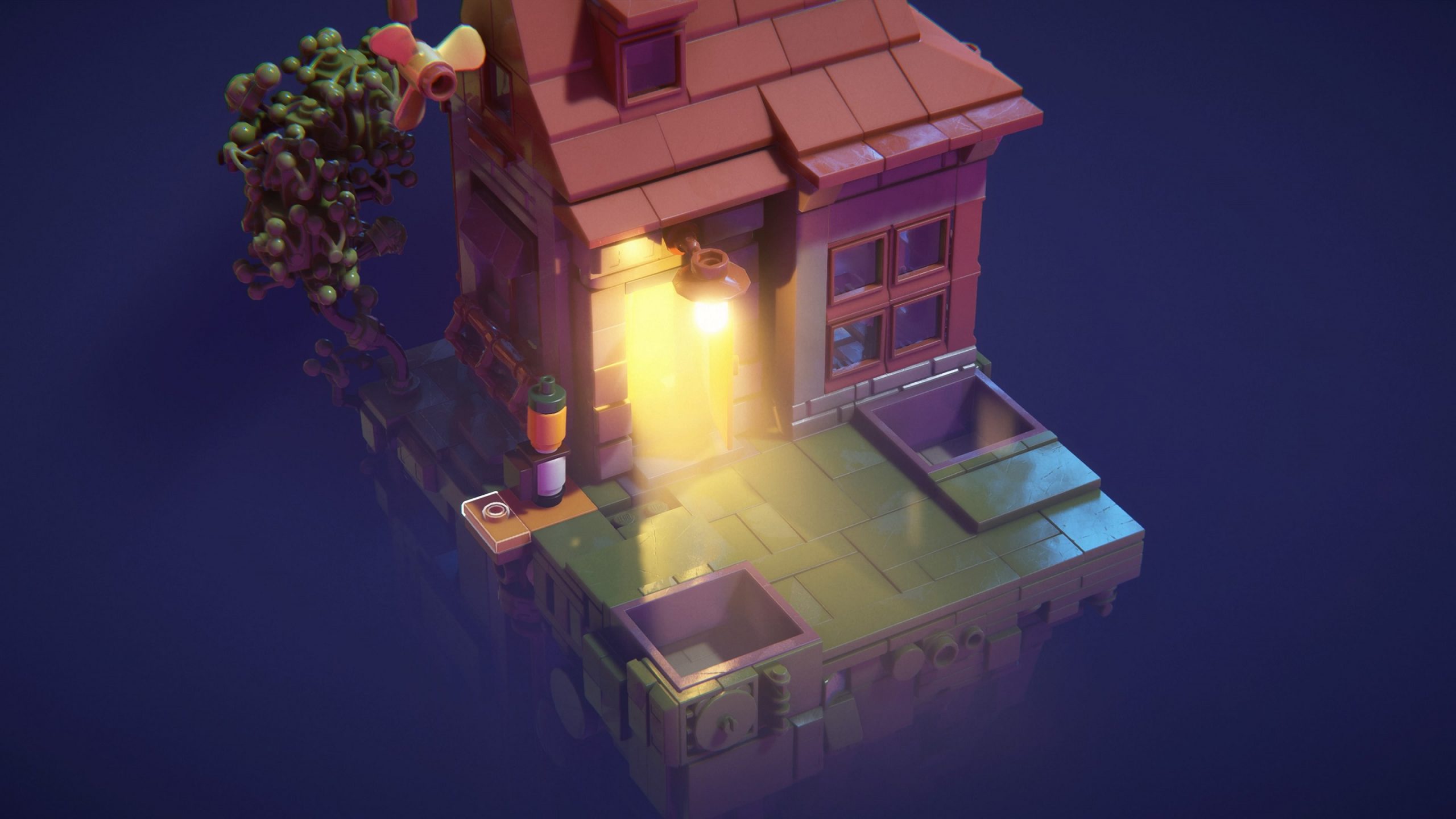A brick through your window
I can see why LEGO is a toy that has easily crossed generations. Sure, you can still get an Etch-a-Sketch or Potato Head, but I don’t think those are as easy to connect with these days. However, I played with Lego, and now my nephews do.
LEGO Builder’s Journey wants to remind you of that. Also, it wants you to remember how much you love LEGO. Also, maybe think about your upbringing. What I’m saying is it’s a game focused on delivering nostalgia, and I’m almost insulted by how blatant it is.

LEGO Builder’s Journey (Mobile, Nintendo Switch, PC, Xbox One, Xbox Series X/S, PS4, PS5 [Reviewed])
Developer: Light Brick Studio
Publisher: LEGO Games
Released: April 19, 2022 (PS4/PS5)
MSRP: $19.99
The gist of LEGO Builder’s Journey is that you’re presented with an ongoing series of LEGO dioramas. Each one is a small puzzle, and it’s up to you to figure out what it wants from you, because it’s hardly consistent. Most of the time, you simply need to build a way from point A to point B. On other occasions it wants you to build something specific. The goals are frequently intuitive, but sometimes not. Later levels, for example, want you to traverse them, but it doesn’t necessarily give you the best indication of where the finish line is.
Sometimes, the game holds your hand and wants you to complete the diorama in a very specific way. Other times, you’re given some freedom to just plop bricks down wherever. Sometimes it’s kind of clever. While other times you just pile down bricks until it high-fives you. Consistency is not what LEGO Builder’s Journey does well.
If you asked me what it does do well, I’d probably say, “Pretty, isn’t it?” For a game that was originally released on iOS, LEGO Builder’s Journey is certainly a looker on PS5. You can even turn Ray Tracing on; a technology whose most appreciable difference is tanking your framerate. Look closely, and you can see little scratches and finger smudges on the bricks. I wouldn’t say that LEGO Builder’s Journey is purely designed as a technical showcase, but it is what it does best.
There’s a story going on with all the dioramas, which seems to be some coming of age told without dialogue. A parent and child bond, the parent gets pulled away to their soulless job, and then the child teaches us about breaking boundaries. Honestly, I find it kind of insipid. We’ve heard this story before and told better, even using the medium of LEGO. It’s not that it’s bad here; it’s just as bland as a styrofoam spring roll.
The building is fine. It’s mostly done with a single button which constantly screwed me up. Press the X button to rotate, hold it down to place. Also, press X to pick up, but it’s the circle button to drop it. There are usually only a few nodes on the stage to place blocks, but for some reason I kept rotating blocks accidentally or placing them down moments after they were picked up. I feel like I would have had an easier time using a mouse. Luckily, LEGO Builder’s Journey rarely requires careful timing, so these screw-ups are just unhappy accidents.

The big new addition for all versions is the Creative Mode which is… not for me, I guess. You don’t just build whatever you want. You’re given “curated blocks” and have to use your imagination to put something together. No thanks. The education system and the weight of reality both crushed all the imagination out of me, and now I just want to make, like, a LEGO Famicom. But I can’t, so… no thanks.
Considering this is a $20 game that has almost no replay value, the rather restrictive Creative Mode is kind of salt in the wound. Once again, I’m reminded that the only thing that LEGO Builder’s Journey does well is its graphics. They’re nice, I guess.
A little consistency would have gone a long way to help LEGO Builder’s Journey. Its puzzles stretch across blatantly obvious to rather murky. It’s not that it ever gets difficult; it just sometimes forgets how to communicate. Otherwise, it’s pretty. Everything else makes little impact. Even its central message is mired in mediocrity. It feels like a game made with the philosophy of indie games around 2010: if you have a message, you deserve applause. Your money would probably be better spent on an actual box of LEGO.
[This review is based on a retail build of the game provided by the publisher.]









